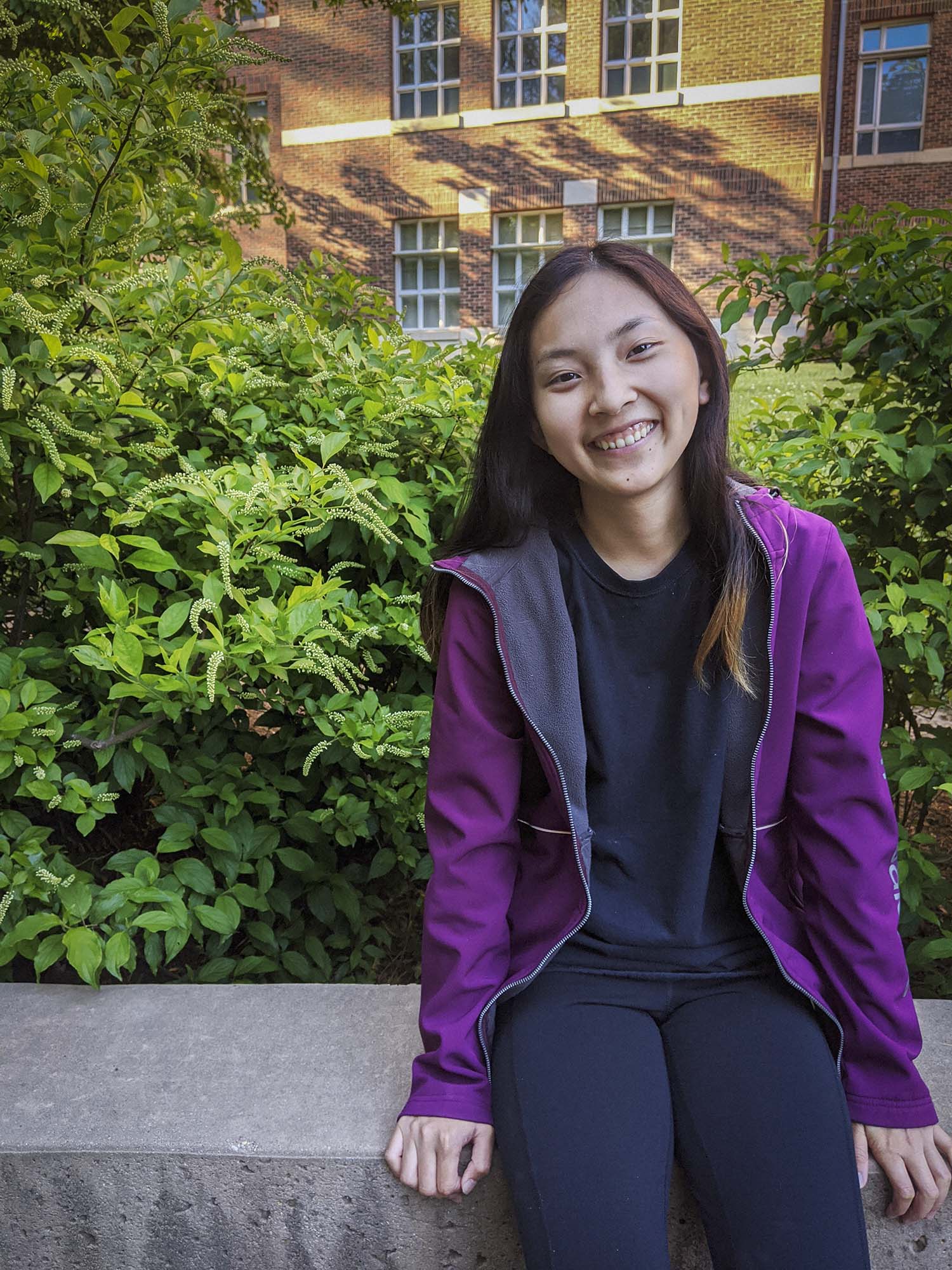University of Virginia civil engineering student Lena Nguyen has found a way to combine her interests in city planning and equity with documenting wheelchair-accessible pathways in Charlottesville.
Nguyen, a rising fourth-year student who is the volunteer chair for the UVA Chapter of the American Society of Civil Engineers, came up with the idea to partner with the organization Code for Charlottesville, which brings together UVA students and Charlottesville community members to brainstorm, gather data and build technical solutions for local concerns. Past projects include mapping and collecting data on the city’s street-light network, compiling data about criminal record expungement, and providing pro bono IT consulting for local nonprofits.
This time, Nguyen focused on wheelchair accessibility within the city’s sidewalks.
“I thought it would be cool to incorporate real-world design into our schoolwork,” Nguyen said. “The idea was originally started by Code for Charlottesville, and when I heard they were looking for volunteers to help map sidewalk accessibility, I wanted to help.”

Lena Nguyen is a rising fourth-year student studying civil engineering. (Contributed photo)
The project has since evolved into a larger street mapping initiative to include curbs and crosswalks, making it easier to connect those transition points with sidewalks for wheelchair- accessible pathways.
Nguyen explained the project is based on accessmap.io, which gives wheelchair-accessible routing directions based on the slope of the sidewalks and built using data from OpenStreetMap, an open-sourced software where anyone can contribute.
“Most maps like Google have legal and proprietary constraints,” Nguyen said. “That’s why we use OpenStreetMap because it’s not only free, but is a wiki world map that relies on individual contributors.”
Jonathan Kropko, assistant professor at the School of Data Science and one of the founders of Code for Charlottesville, applauds Nguyen’s initiative.
“The belief in open source data is a foundation of the School of Data Science,” Kropko said. “Lena’s mapping project is a great example of leveraging community collaboration with available software applications for the common good.”
According to Nguyen, most of Charlottesville is not yet mapped for wheelchair accessibility. “Our goal is to work with the city’s ADA coordinator and eventually map out all curb cuts, crosswalks, and sidewalks,” she said.
The map-a-thon, which took place in April, included 20 student and community volunteers, and they got a lot done in a short amount of time.
“In just a couple of hours, we were able to map 174 intersections. That’s roughly 7% of the city,” reported Nguyen, “and so far, we’ve mapped out about 20% of Charlottesville.”
Nguyen, who will be interning this summer in Washington, D.C. for a transportation engineering firm, hopes to map out all of Charlottesville by the time she graduates. “I plan on continuing to promote the project and holding future map-a-thons.” She also credits Code for Charlottesville for the original inspiration and as a valuable partner.
“The real story behind Code for Charlottesville is our volunteers,” Kropko noted. “There’s a team of truly gifted volunteers, people who are just extraordinary and give their time generously to our many projects.”
Code for Charlottesville draws over 200 volunteers from across the University and Charlottesville community. Volunteer coders, designers, data analysts, researchers, and community partners work on projects with local nonprofits and governmental agencies. Past projects have partnered with the Legal Aid Justice Center, the Charlottesville Fire Department, and the Charlottesville Office of Human Rights.
Kropko hopes the organization can serve as a bridge between technology and the city. “It’s through volunteer initiatives like Lena’s that show how important and useful data can be to drive positive change and benefit our community.”
Media Contact
Article Information
June 11, 2021
/content/coding-common-good-students-volunteers-map-accessibility-local-sidewalks

